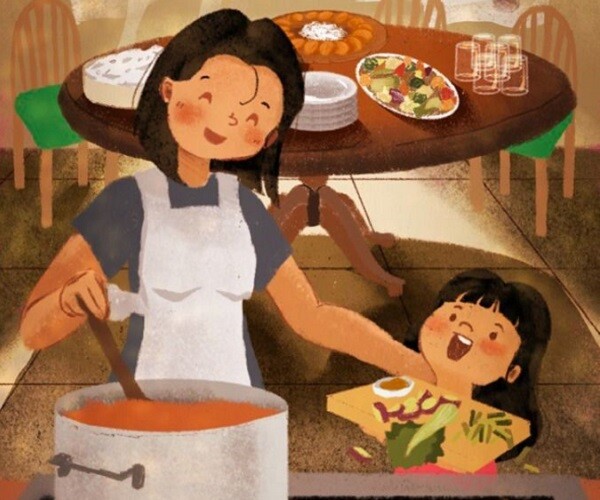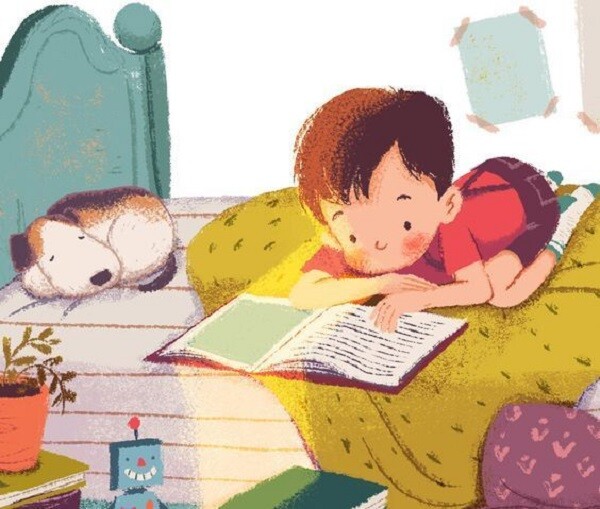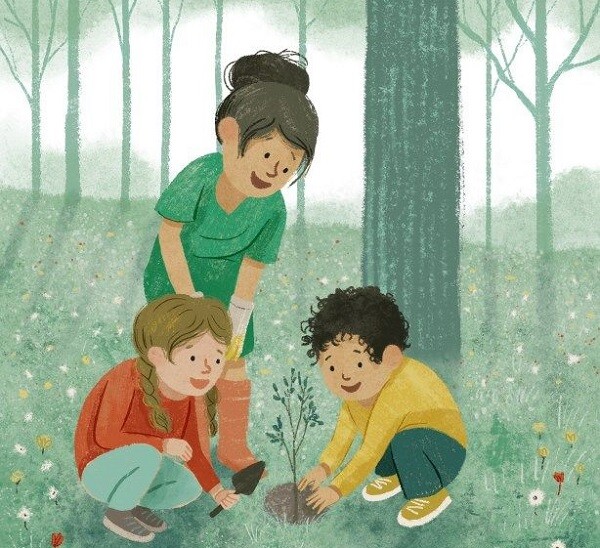A wise mother often knows how to guide and accompany her child on a journey of discovery. By letting go at the right time and skillfully stimulating potential, a mother can help her child grow and improve in a comfortable and free environment.


2 things a wise mother lets go of to teach her child successfully
Don’t control your child’s interests
It is truly valuable for a child to have some personal interests and hobbies.
Children explore and experience the world through play, where they can use their imagination and creativity.
Moreover, when children embrace adventure and joy, their lives become filled with vitality and energy.
Let them stomp in puddles and play in the mud carefree, enjoying pure happiness as long as they’re within a safe environment.
This freedom to play will nurture their childhood and better prepare them to face future challenges.

A mother accompanies her child as they grow.
Give your child time to face challenges
Many parents believe that supervising their child’s every activity will help them make more progress in their studies and development.
However, when parents become commanders in every aspect of their child’s life, it can seriously diminish their enthusiasm and motivation.
Children will become dependent on constant direction and gradually lose their ability to be independent and self-motivated in their studies and exploration of the world around them.
Dr. Montessori said: “Never help a child with a task at which he feels he can succeed.” This quote emphasizes the importance of letting children take on tasks that are within their capabilities.
Through these experiences, children will learn valuable lessons about patience, perseverance, and self-confidence.
Education is a process where children grow and mature by facing challenges, whether big or small, learning to cope with pressure, developing problem-solving skills, and cultivating perseverance.

Establishing good habits helps children build a solid foundation for life
The most important thing for parents is to help children develop good study habits from an early age.
Reading habit
Textbook knowledge may sometimes not be enough to satisfy a child’s curiosity. Therefore, parents should encourage their children to develop a reading habit to explore new things and nurture their imagination.
First, parents can buy their children a variety of interesting books suitable for their age and interests. Choosing books with vivid illustrations and engaging content will help capture their attention.

Reading habit.
Additionally, stories with depth, diverse characters, and rich scenarios will stimulate their imagination, broadening their perspective of the world.
Apart from buying books, parents should also create a comfortable and quiet reading space at home. A cozy corner with soft lighting and a small bookshelf can become an ideal place for children to discover new books.
Habit of planning and managing time
The difference between top scholars and average students often lies in their ability to allocate energy and plan their time effectively.
Parents can guide their children to create a daily to-do list and plan their schedule, teaching them to prioritize tasks and cross them off the list as they complete them.
Teaching children to plan their time effectively also means instilling in them the value of time and how to make the most of it.
Habit of going to bed early and waking up early
Many children have the habit of staying up late, which can lead to irritability, lack of focus in class, and reduced mental energy to think critically the next day.
By cultivating the habit of going to bed early and waking up early, parents can promote a more relaxed and positive mental state for their children.
Positive attitude
Children with a positive attitude tend to be more confident in facing challenges. When children believe in their ability to overcome difficulties, they will eagerly engage in new activities and explore their surroundings.
They also learn to view problems from a positive perspective and develop good emotional intelligence, reducing anxiety and stress in their lives.

Positive attitude.
Their optimism and positive outlook will spread to those around them, creating a cheerful and harmonious environment.
In reality, what determines a child’s success or failure is often not their grades but their mental resilience.
Psychologist David Wood believes that “Parents should act as facilitators, allowing their children to use their brains to find solutions to problems.”
Nurturing independent learning, awakening intrinsic motivation, and providing strong emotional support are key to a child’s success.
The Vietnam Military History Museum Opens its Doors: Youth Eager to Witness the Four National Treasures Up Close.
The highly-anticipated opening of the Vietnam Military History Museum is almost upon us, and the excitement among young enthusiasts is palpable. With the official opening set for November 1st, many are eagerly awaiting the chance to explore the exhibits in person, having already taken note of the most intriguing displays.



































